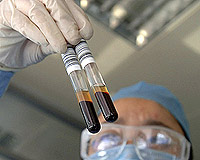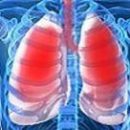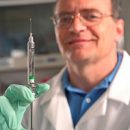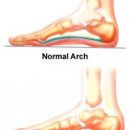What to do if you are sarcoidosis? How to diagnose sarcoidosis? How to treat sarcoidosis? Answers to these questions you will find in the article.
Content
What is sarcoidosis
Sarcoidosis - system granulomatous disease,
characterized by an increase in lymph nodes and lesions of the lungs, skeleton,
Liver, eye and leather. More often observed in a blooming age (from 20 to 40 years),
Moreover, women are 2 times more often men.
Acute sarcoidosis is usually cured for two
years old. Chronic, progressive sarcoidosis, which occurs infrequently, proceeds
with fibrosis of pulmonary fabric and leads to respiratory failure.
Causes of sarcoidosis
It is assumed that the development of the disease is played by
The following factors:
- impaired immunoreactivity, in particular, is observed
acute response of the body on the impact of atypical mycobacteria, fungi and
Pine pollen;
- genetic predisposition;
- Contact with chemicals (for example, zirconia
or beryllium) can lead to the occurrence of the disease.
What to do if you are sarcoidosis
If sarcoidosis took you a long course, try
pay more attention to your health.
- With hypercalcemia (excess calcium in the blood)
Go to low calcium diet. - Treated with corticosteroids strictly according to
with instructions of the doctor. - Regularly pass the surveys and perform everything
Appointments of the doctor. - If you worsen vision, find out your doctor,
How do you contact the Society of Aid Weakness and Blind.
Symptoms of sarcoidosis
At the early stage of the disease, pain pain appear
(in wrists, ankles, elbow joints), fatigue, malaise, slimming.
Other symptoms can be different depending on the prevalence and localization
Fibrosis (connective tissue seals with the appearance of scar changes in various organs):
 In respiratory bodies (breathing difficulty, cough
In respiratory bodies (breathing difficulty, cough
Usually without sputum, stubborn pain; In severe cases, the pulmonary
Hypertension and pulmonary heart);
- Skin manifestations (nodules and rashes, lesions
mucosa nasal sinuses);
- eye damage (most often inflammation of the iris;
In rare cases - glaucoma, blindness);
- Defeat of the lymphatic system (increasing the spleen,
diseases associated with damage to lymphatic nodes);
- The damage to muscular and skeletal structures (weakness,
Muscular pain and joint pain, surface ulcerations on the fingers and
legs);
- Liver (usually asymptomatic hepatitis);
- Changes from the cardiovascular system
(violation of heartbeat rhythm);
- Sarcoidosis of the central nervous system (paralysis,
meningitis, seizures of epileptic, inhibition, like seriously ill
asthma).
Diagnosis of sarcoidosis
The diagnosis is made on the basis of clinical and radiological
Surveys and results of laboratory tests. To confirm the diagnosis
Use the skin test Kweium-Siltsbach. Patient make an injection of antigen cooked
From the sample of the spleen tissues and the lymphatic node of the patient with sarcoidosis. If patient
sarcoidosis is in active form, then at the injection site in 2-6 weeks
granuloma. The reaction is considered positive if the analysis of the leather fabric is in place
Injection discovers the presence of granuloma from epithelioid cells.
In diagnosis
Used also:
- X-ray studies of the chest;
- checking the functioning of the lungs;
- blood test results, including gas
Arterial blood composition.
Negative results of tuberculin samples, serological
Reactions and sowing material sputum for the presence of mycobacteria and fungi, negative
Biopsy results confirm the probability of sarcoidosis.
Treatment of sarcoidosis
If sarcoidosis proceeds asymptomatic, treatment is not
Required. However, when defeating the eyes, respiratory organs, central nervous system,
Hearts or with generalized symptoms (fever, weight loss)
treatment with corticosteroids, systemic or external means. The same treatment
shown in hypercalcemia (high calcium in blood) or destructive
Skin lesions. The duration of treatment is usually 1-2 years old, but some patients
have to be treated all my life.
In addition, patients with sarcoidosis recommend a diet
low calcium. In hypercalcemia, it is impossible to expose
direct sunlight.









